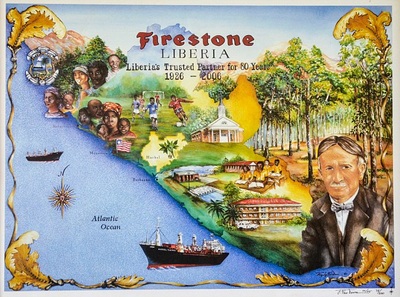New Game Rich Picture Book App Dentist Bird: A West African Folktale
Just Released on the AppStore and Google Play for $1.99
Proceeds to Support Literacy Efforts Desperately Needed in Ebola Ravaged Liberia
"100% of all sales will be donated to the We-Care Foundation’s efforts to keep children reading and learning amidst the Ebola outbreak."
"Africa is not a country and Liberia is not a virus."
Based on a Liberian folktale How Plover Bird Came to Clean Crocodile’s Teeth retold by Michael Richards and illustrated by Liberian painter David Wolobah, Dentist Bird features music by Emmy-nominated Dora the Explorer composer, Steve Sandberg.
The first in a series of global folktale-inspired apps from app publisher Literary Safari, Dentist Bird harnesses the power of storytelling and gaming to expose children to diverse countries and cultures—starting with Liberia. “During the ‘Ebola panic,’ kids were stigmatized in schools just because they were of African origin. Africa is not a country and Liberia is not a virus. #weneeddiversebooks. Early exposure to diverse folktales can foster an appreciation of the universal ideals and values that connect us all and increase respect of cultural and ethnic differences,” says Sandhya Nankani, founder of Literary Safari.
Literary Safari is partnering with The Rumie Initiative and #eduoverebola to provide the app on tablets being sent to Liberia for use in an education program for children orphaned from Ebola.
App Features:
Read: An interactive West African folktale with embedded gameplay
Play: A story-inspired game set in Liberia’s rich rainforest
Learn: For ages 4+, fun geography and science activities based on the folktale
Plus: Common Core aligned K-3 teacher’s guide, parent’s guide for reading and playing together
Quick Links:
Dentist Bird on iTunes | Dentist Bird on Google Play | www.dentistbird.com
Twitter | Facebook | Featured in Moms with Apps | Praise from Teachers with Apps
About the Publisher: Literary Safari (www.literarysafari.com) curates, develops, and publishes print and interactive content that support child and adult literacy. It is deeply committed to projects that celebrate authentic voices, textual diversity, multicultural literature, and real-world learning. Dentist Bird is its first app. Contact: [email protected], 347.560.9712
Twitter: http://twitter.com/Erika_Amoako
LinkedIn: contact Erika on LinkedIn
Facebook: Africa Business Review Face Page
Facebook: http://www.facebook.com/AfricaBusinessReview
Website: www. AfricaBusinessReview.net
Website: www.AfricaIntercultural.com

